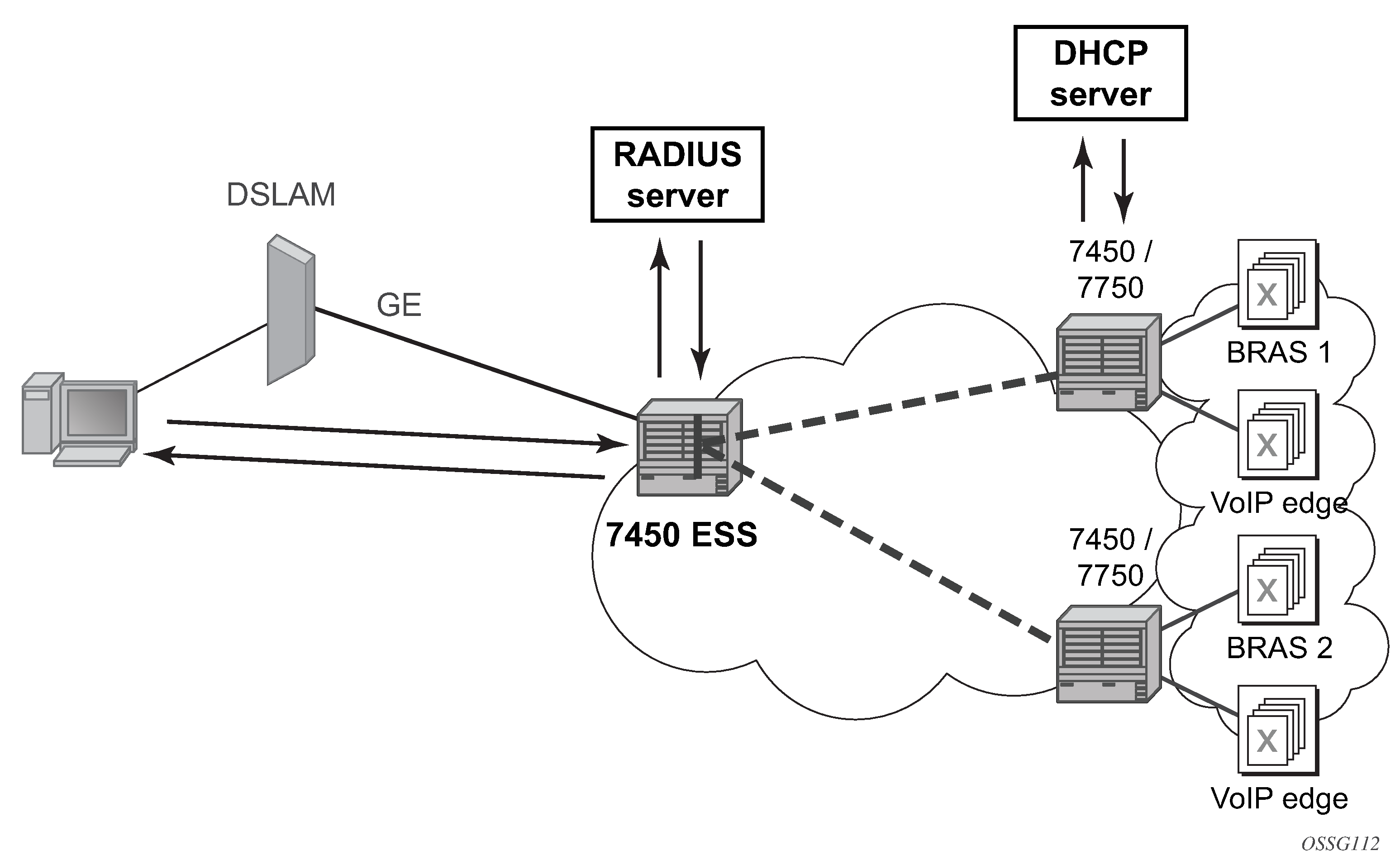Figure: Triple Play aggregation network with RADIUS-based DHCP host authentication shows a flow of RADIUS authentication of DHCP hosts in the Triple Play aggregation environment. Besides granting the authentication of specified DHCP host, the RADIUS server can include RADIUS attributes (standard or Vendor-Specific Attributes (VSAs)) which are then used by the network element to provision objects related to a specified DHCP host.

RADIUS is a distributed client/server concept that is used to protect networks against unauthorized access. In the context of the router’s subscriber management in TPSDA, the RADIUS client running on nodes sends authentication requests to the SSC.
RADIUS can be used to perform three distinct services:
Authentication determines whether a specific subscriber-host can access a specific service.
Authorization associates connection attributes or characteristics with a specific subscriber host.
Accounting tracks service use by individual subscribers.
The RADIUS protocol uses ‟attributes” to describe specific authentication, authorization, and accounting elements in a user profile (which are stored on the RADIUS server). RADIUS messages contain RADIUS attributes to communicate information between network elements running a RADIUS client and a RADIUS server.
RADIUS divides attributes into two groups, standard attributes and Vendor-Specific Attributes (VSAs). VSA is a concept allowing conveying vendor-specific configuration information in a RADIUS messages, as discussed in RFC 2865, Remote Authentication Dial In User Service (RADIUS). It is up to the vendor to specify the exact format of the VSAs.
Nokia-specific VSAs are identified by vendor-id 6527.